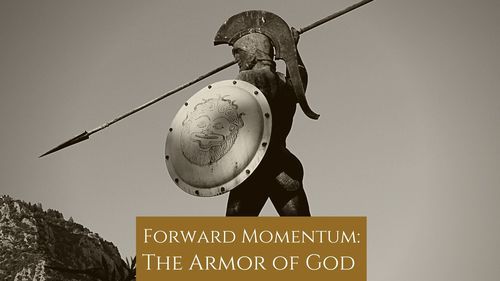“Your belief in the future creates your behavior in the present.”
- Jasen Hansen
The bible contains roughly 500 verses on faith and another 500 verses on prayer. But it holds over 2,000 verses about money and possessions. Second only to salvation, God’s Word discusses money more than any other subject. If sheer quantity is any indication of the importance and value of a subject, then handling money must be a very important topic for Christians to address.
Jesus states that we cannot serve under the direction of both God and money. One pulls us toward a life of self-reliance and greed while the other encourages us to remain dependent and generous. Between God and money, there is only room for one master (see Matthew 6:22-24).
By itself, money is not inherently evil. It is the idolization of financial independence that conflicts with God’s will. God is also not anti-wealth. Oftentimes, he’ll greatly increase our income and possessions so that we can be a blessing to others. Money is not evil, and God is not stingy. It’s what we do with what we’re given that determines the moral outcome.
Jesus has a lot to say about treasure – literal treasure (income, assets, etc.) – and the impact it has on our lives. Bank statements today give us more information than just account balances. They act as windows to the heart. Where we put our treasure dictates what we care most about, thus revealing our transparent hearts (see Matthew 6:19-21). In other words, our money habits determine and expose the most important parts of our life.
You can only serve one master. When money is our master, the focus is financial security, outward appearances, having an abundance, living for today. This is reflected in our spending habits. Big house, fast car, gourmet meals, extravagant trips. These things are not inherently evil, but ultimately they only benefit life here on earth. With God as our master, the focus is honest earnings, supporting our family, helping others, growing God’s kingdom. This also is reflected in our spending habits. Paying taxes, food and shelter, charitable giving, tithe and offerings. These things are not God’s plan for our poor demise. Rather, the benefits of honest earnings and caring for the Body of Christ extend beyond this physical life.
It starts with identifying who it all really belongs to. We are created beings, only here for a moment. The earth and everything in it existed before we were born, and it will continue to exist long after we’re gone. In Psalm 50, God claims to have no need for a sacrificed bull or goat because “every animal of the forest is mine, and the cattle on a thousand hills” (see Psalm 50:7-13). He goes on to say that the world and everything in it belongs to him. That’s the difference between the created and the Creator – the one that creates it owns it. And the one who owns everything needs nothing. But we… we are needy. We need the owner to carry the contract, taking the necessary risks on our behalf.
It is this dependence that God is looking for, the acknowledgement that we cannot save ourselves, even with a big bank account. Money is a resource – used for living, giving, and fun. But God is the source. Wealth and honor come from the ruler of all things (see 1 Chron 29:12). What we – created beings – utilize every day through income and assets is just a resource. Imagine how much more effective it would be if we called directly upon the source. God explicitly asks us to call on him in the day of trouble (see Psalm 50:14-15) so that he can be our source and our deliverer.
Money can grip us and direct our steps, or God can. The choice is yours. Take a look at your bank statement. Is your treasure going toward temporary thrills? Or are you investing in the development of God’s kingdom? You may need to change your financial habits. Remember: your heart follows the direction of your treasure, so spend it wisely.








